The Week on Stage: From Hex to Kerry Jackson
A guide to the week’s theatre
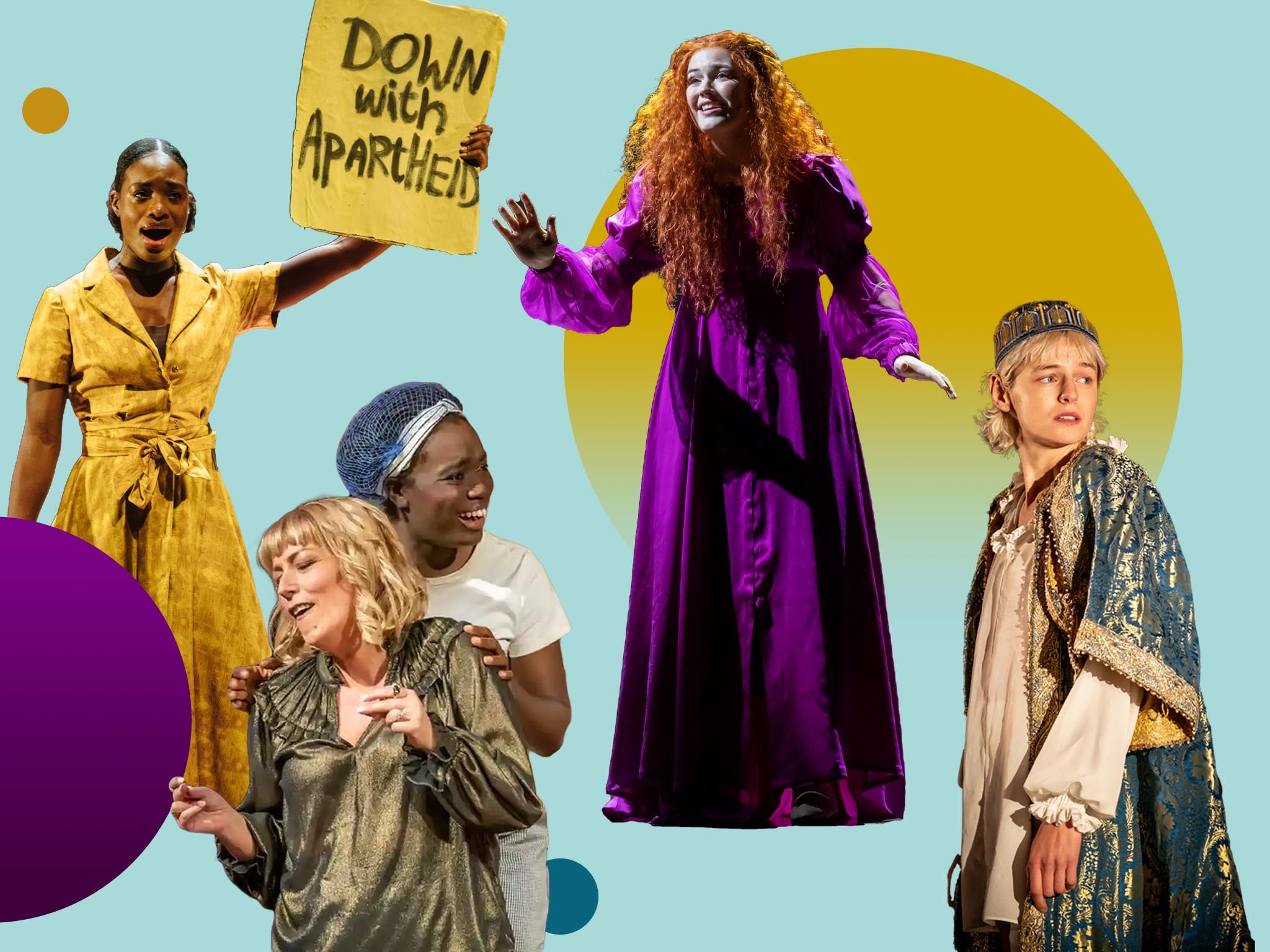
This week, a major new musical about the life of Nelson Mandela opens at the Young Vic, Emma Corrin returns to the West End, and the National Theatre brings a family Christmas show and a new play about class warfare.
Mandela – Young Vic ★★★☆☆
Creating a musical honouring one of the world’s great freedom fighters was never going to be easy. Mandela, a new production at the Young Vic, has a good go at it, with some moments that genuinely sparkle. But ultimately, it falls short of delivering the strong message it hopes to.
One of the first things that strikes you is the incredible vocal power of the cast. When they sing in unison in the show’s opening number, harmonising at the top of their lungs, it’s thrilling. And then… it happens again, mere minutes later. As a mostly sung-through piece of theatre, with music and lyrics by brothers Greg Dean Borowsky and Shaun Borowsky, the more “big song” moments that come along, the weaker their impact.
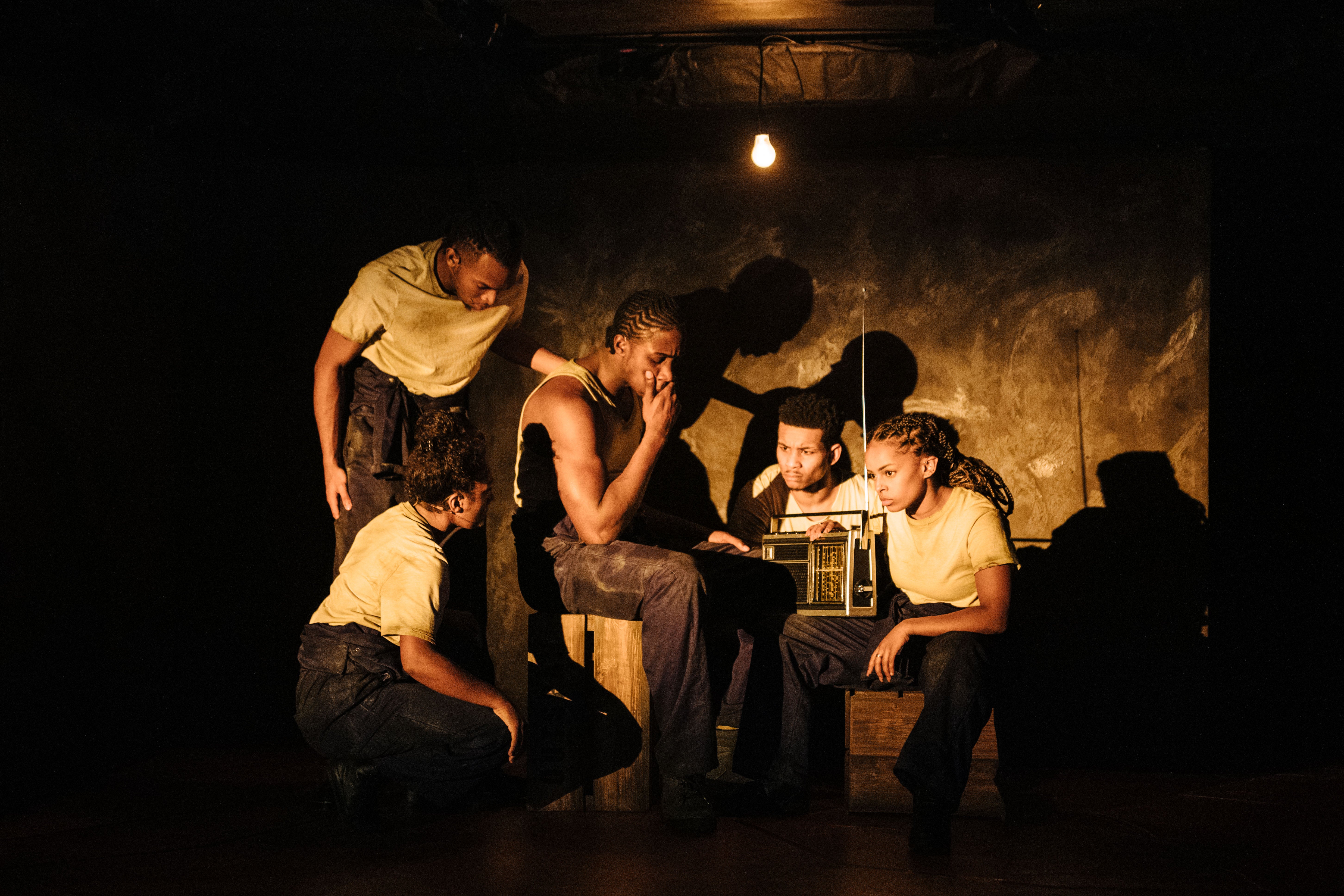
Only with outside knowledge do we know that the action begins in 1960, when the Sharpeville massacre resulted in the killing and wounding of nearly 250 unarmed South Africans who were protesting racist pass laws. The show never quite tells us this. We end in 1990, when Mandela walks free after 27 years of incarceration – but the details of the work that it took to arrive at that moment are frustratingly glossed over. What happened? And why did Mandela’s plight touch so many? By the end, we’re still left wondering.
As Nelson Mandela, Michael Luwoye is dignified, while Danielle Fiamanya is a formidable Winnie. But they’re let down by the show’s limp script, which merely suggests a struggle, instead of showing one, and the oversimplification of the couple’s differing views – issues that aren’t explored as seriously as they deserve. Nicole Vassell
Hex – National Theatre ★☆☆☆☆
Hex might be based on the story Sleeping Beauty, but the National Theatre’s Christmas musical – finally opening after endless Covid-related cancellations in 2021 – feels like more of a living nightmare. I can’t remember the last time I left the theatre both baffled and bored, with so many questions unanswered. Is Hex, directed by NT boss Rufus Norris, a pantomime or serious theatre? Is it meant to be funny, or scary? For kids or adults?
By its own admission, Hex is Sleeping Beauty like you’ve never seen it before – probably for good reason. This time, Princess Rose (Rosie Graham) has been put to sleep by a supremely annoying but well-meaning “low fairy” called… Fairy (Lisa Lambe). When she learns that an ogre called Queenie (Victoria Hamilton Barritt) is about to give birth to a baby that’s half human (don’t question it), she deduces that the unborn prince Bert (Michael Elcock) could be the man she’s looking for. That is, if the ogress doesn’t eat her own child first.
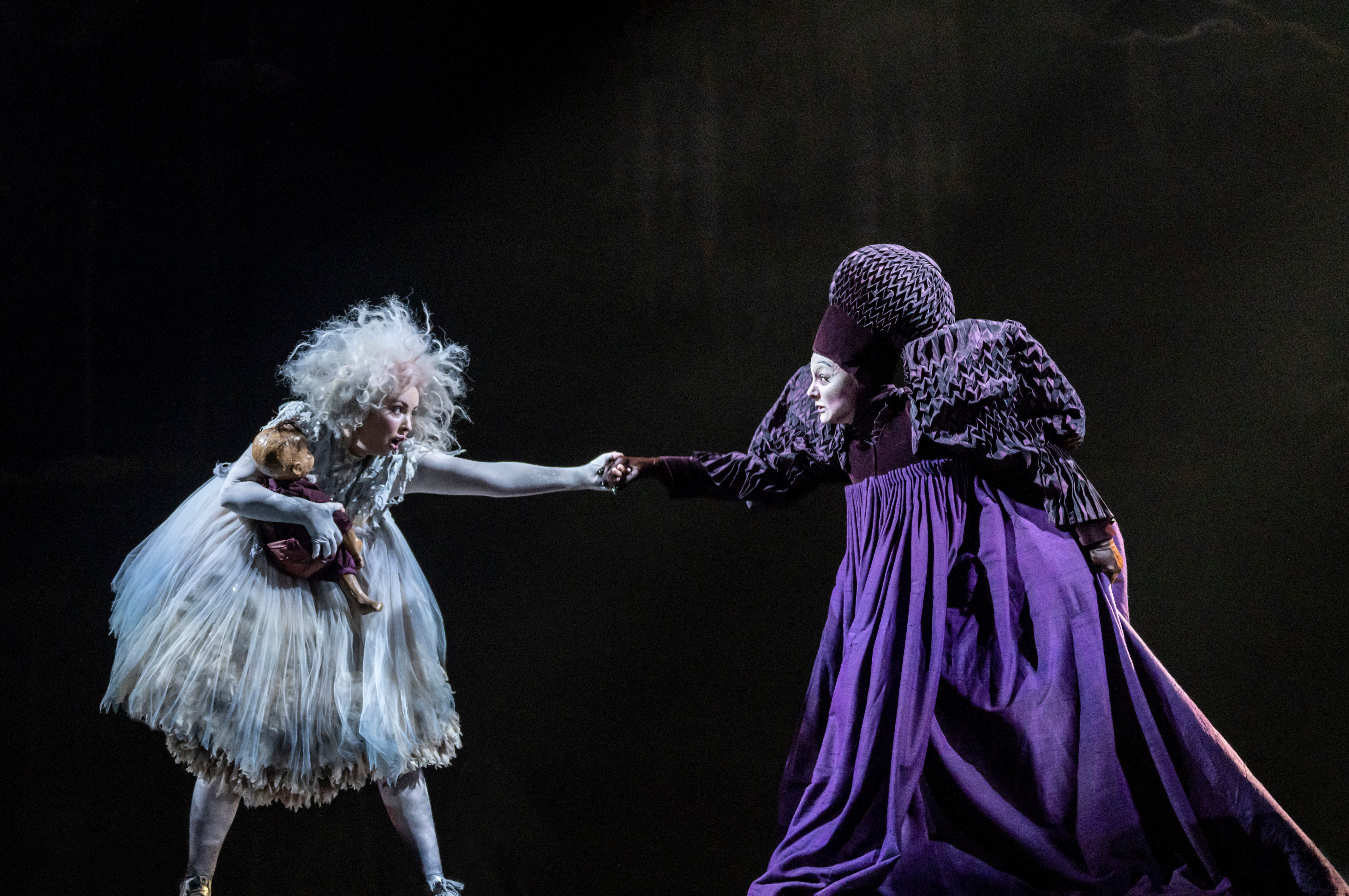
From its script (written by Norris’s wife Tanya Ronder) to what plays out on stage, Hex is a total mess. It’s a tonal jumble, with every song trying to squish multiple musical styles, plotlines and characters together. While Lambe has a lilting singing voice and Hamilton-Barrett powerful stage presence, their performances struggle to compete with atrocious lyrics I can only assume came from someone googling “words that rhyme with cat”. Stylistically, it shares a lot of similarities with Andrew Lloyd Webber’s Cinderella, but where those avant-garde costumes elevated a clunky story, they’re not strong enough to save them here.
In moments, I questioned whether I’m simply the wrong audience for Hex. But I just don’t know if this show would appeal to children either – not to clutch at my pearls, but the inclusions of the words “s***” and “b****” felt totally unnecessary and out of place. This Christmas, support your local panto instead. You’ll undoubtedly have more fun. Isobel Lewis
Orlando – Garrick Theatre ★★★★☆
This is Virginia Woolf turned up to a nine. No, seriously: Michael Grandage’s adaptation of her most punk rock novel begins with nine bespectacled, cardiganed Woolfs roaming the stage, reading, writing, thinking. All but two of the cast – including its only man, Richard Cant – play the novelist at various moments throughout the play.
At its heart is a highly magnetic performance from Emma Corrin, playing the handsome young nobleman who time-travels through centuries and, at the age of 30, wakes up as a woman. Corrin, after appearing in a couple of disappointing films, delivers a joyful and groundbreaking Orlando that feels like a calling card for the stardom that The Crown first promised. They’re magnificent. Whether bowing to Elizabeth I or falling in love on a frozen pond, they’re just as capable of humour as they are pathos, with Orlando by turns intense, charismatic and swoonworthy.
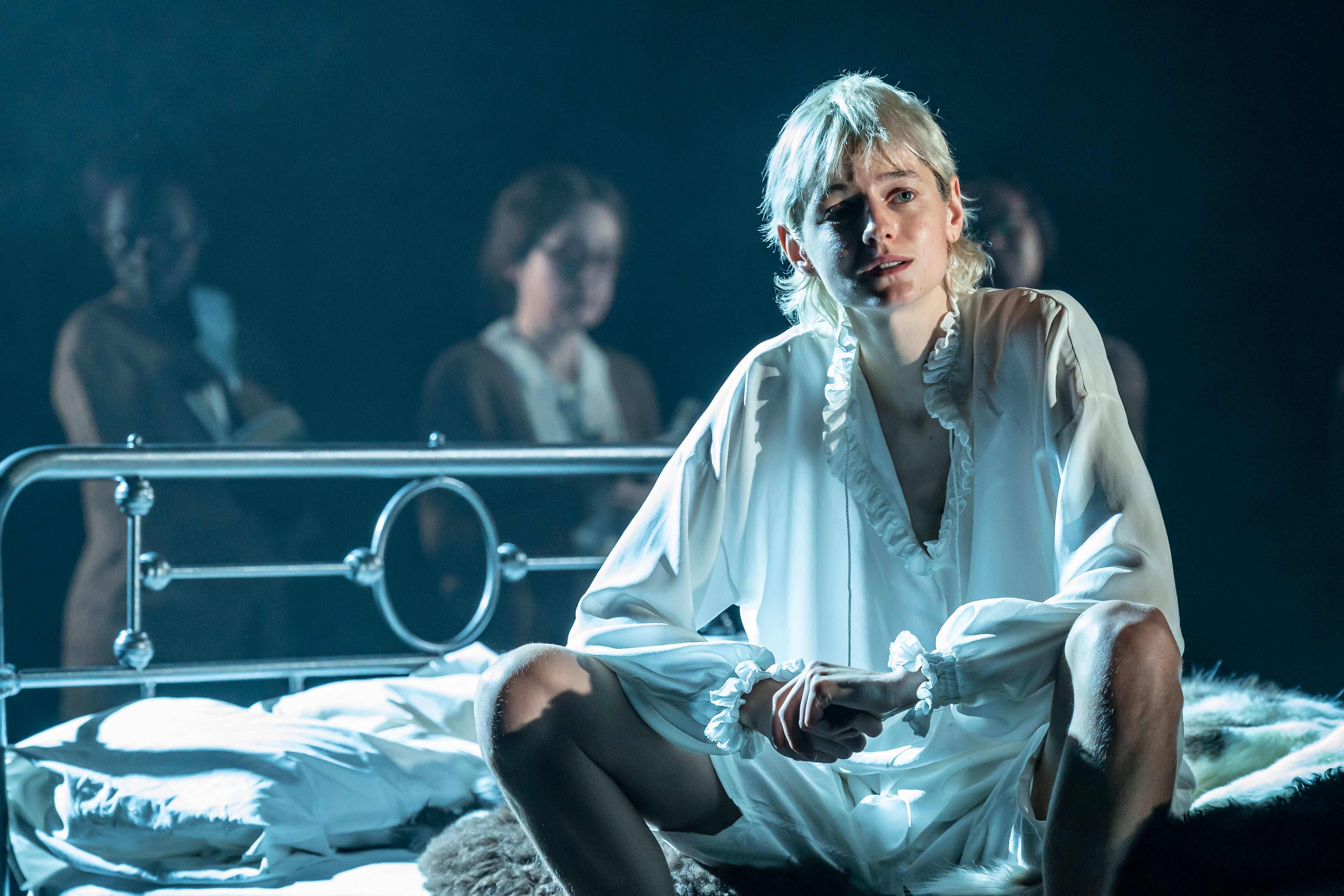
Where the novel creates an overwhelming world of colour and history, Peter McKintosh’s set is bare, the action summoned instead by language – “Try words,” as the chorus of Woolfs advise Orlando. This can sometimes make the show feels static, without the novel’s heady perpetual forward motion – but here the slipperiness of the changing centuries and Orlando’s journey through gender become much more about the mutable power of identity. “Who am I?” is the question that Orlando explores from the first scene to the last. True to Woolf’s spirit, the show’s strongest charm really is its inventiveness and creativity, and its final scene, though a little polemical, is a triumph, finding a conduit to genuine emotion. Who is Orlando? Only Corrin’s greatest role since Diana. Jessie Thompson
Kerry Jackson – National Theatre ★★☆☆☆
If you go to the theatre even semi-regularly, you will have already seen a version of Kerry Jackson. The comedy, written by April De Angelis and directed by Indhu Rubasingham, is about war – of the class and culture kind. It’s a subject on which there is a lot to say. It’s a pity then that the many, many plays that do attempt to tackle it – now including Kerry Jackson – never seem to say anything new.
A war needs sides. So in the blue corner, sporting a jazzy top and an Essex accent, is small-business owner Kerry Jackson – a self-confessed “gobby woman” (played by Fay Ripley) who voted leave and hates the neighbourhood “tramp” using the bins behind her Walthamstow restaurant as a toilet. And in the red corner is Stephen (Michael Gould), a middle-aged, middle-class lefty who wears his white privilege on his sleeve and vegan shoes on his feet. There is also Stephen’s daughter Alice (Kitty Hawthorne making her theatre debut), who says things like “you are dis-authenticating me”, as well as Kerry’s employee and friend Athena (Madeline Appiah), who appears caught in the crosshairs of it all. Then there is Will (Michael Fox), the local homeless man whose truncated storyline feels like collateral damage in service of the play’s larger meaning – if only it was clearer what that is.
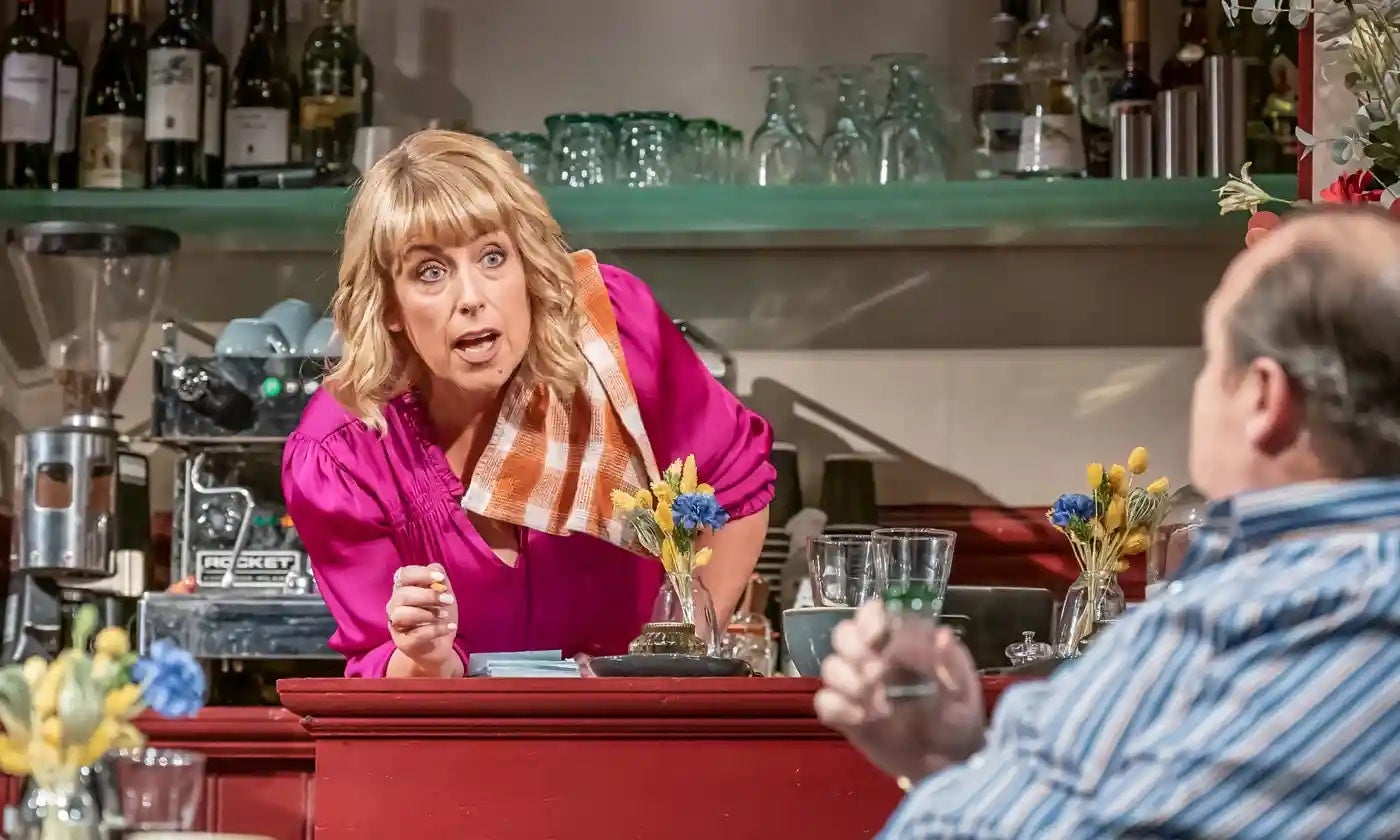
The dialogue, which is peppered with funny blows at the liberal left and the Tory right, is familiar territory by now. We’ve heard it in productions such as the Old Vic’s Eureka Day a few months ago, and Moira Buffini’s Manor some months before that – also at the National Theatre. Still, the ensemble cast turn in solid performances regardless, and there are attempts to tease out complexities from the cliches. No one side is allowed to be totally unsympathetic; Stephen is given a dead wife, for example, and Kerry’s harsh outlook on life may stem from a case of sexual assault that she blames herself for – although I would venture that her threat to report Athena’s undocumented status to the police is pretty unforgivable. It’s hard to come back from that, just as it’s hard to overcome Kerry Jackson’s melee of cliches and uncover the play’s point. Annabel Nugent






Join our commenting forum
Join thought-provoking conversations, follow other Independent readers and see their replies
Comments